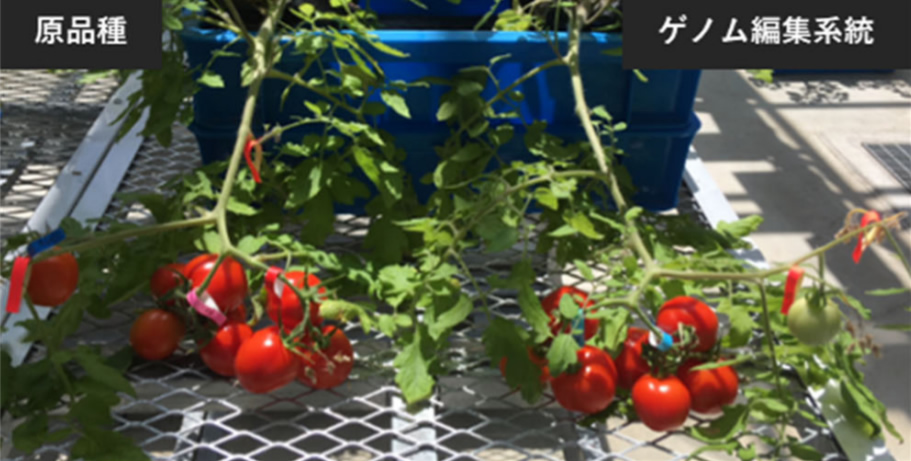30% sweeter tomato with gene editing by Japanese university
A team of researchers from several Japanese universities, led by Nagoya University, developed a new tomato with higher sugar content using genome editing.

Tomatoes are among the most popular vegetables in Japan. It ranks first out of all vegetables in amount produced, and tomatoes with high sugar content are particularly in high demand.
Meanwhile, conventional tomatoes with a high sugar content requires a high level of cultivation technology and automated systems to grow. Depending on how you grow it, the size can be small, greatly reducing the harvest.
For many years, demand for cheaper and more stable ways to provide consumers with tomatoes of high sugar content has been growing.


As you can see from the picture above, although genome editing enhanced the sugar content in the tomatoes, their size hardly changed.
The joint research shows that genome editing can successfully produce tomato varieties with high sugar content by suppressing the genetic code for a substance that inhibits the “Invertase” enzyme. Invertase is an enzyme that controls the sugar flow from tomato leaves to their seeds. The fruit size remains the same, but the sugar content of each tomato increases by about 30%.
Genome editing (GE) or gene editing is artificially adding changes to genes that can occur in nature. It is different from genetic modification, which involves inserting new genes from outside sources and making changes that do not happen naturally.
You can read about the Islamic perspectives on genome editing from the related article below.
This type of tomato does not need any special growing methods. And they do not tend to become smaller in size or have less crop quantity. So, people can now produce sweeter and tasty tomatoes.
Related Article:
World’s first gene edited fish now on the market (for Islamic perspective on GE)
Lower ocean CO2 with gene editing to algae carbon cycle
We have a network of Japanese companies keen to expand into the Halal market in Malaysia & Indonesia.
If you are interested in connecting with sustainable technology companies in Japan, simply JOIN the network from below. We will match the right one for you!




